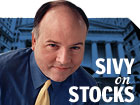|
The Tyco machine
|
 |
November 19, 2001: 7:18 p.m. ET
Today’s most successful big growth conglomerate, Tyco continues to produce -- and confound the skeptics.
By Michael Sivy
|
NEW YORK (CNN/Money) - Since the early 1990s, Tyco International has compiled a superb track record. Earnings, cash flow and book value have all increased at a compound rate of more than 17 percent annually. And recently, those growth rates have actually accelerated. Earnings could be up as much as 30 percent in the current fiscal year (which ends Sept. 30, 2002), and average 20 percent growth over the next five years. So what's not to like?
Fact is, though, Tyco has been the target of ongoing criticism by analysts and journalists that has weighed down the stock for several years. Much of Tyco's growth has come from acquisitions, and skeptics keep charging that these acquisitions somehow inflate earnings (although no one ever seems able to demonstrate exactly how this inflation occurs).
Criticism of Tyco's results always comes back to one of two charges -- either the company is using its overvalued stock to make deals that effectively buy earnings or it is taking advantage of overly flexible accounting laws to inflate its profits by hiding expenses in acquisition-related write-offs. I have never seen convincing arguments that either of these things was happening. (And neither did the SEC, when an analyst's negative report in 1999 prodded the commission to investigate Tyco's finances.)
Instead, I think that Tyco's strategy is just as it appears. The company buys relatively inefficient businesses with good basic franchises and then restructures and cuts costs -- boosting total profits. In the past year alone, Tyco has acquired or agreed to acquire half a dozen companies. Businesses currently range from fire-protection systems and printed-circuit board manufacture to undersea cables and disposable medical supplies.
Acquisition-based growth does carry obvious risks. There has to be a continuous supply of takeover candidates, the company has to be able to identify the promising ones and quickly boost profit margins after those businesses are acquired. But Tyco CEO Dennis Kozlowski, 54, has been demonstrably good at doing these things for a long time. In addition, Tyco's cash flow has continued to grow even in years when the share price was too depressed for the company to buy profits through stock-for-stock takeovers.
With projected growth of 20 percent a year, Tyco (TYC: up $0.97 to $58.01, Research, Estimates) certainly looks cheap. At a current price of $58 a share, Tyco trades at less than 16 times earnings for the current fiscal year.
It's true that to maintain the maximum rate of earnings growth, Tyco has to continue to make lots of acquisitions. What I consider more important, however, is the company's solid potential for internal growth. With a return on equity that has ranged between 15 percent and 20 percent, Tyco's existing businesses should be able to outpace the market's historical return of around 12 percent a year. That alone justifies a P/E higher than 16. The additional growth Tyco picks up from dealmaking is just a bonus.
Sign up to receive Sivy on Stocks by e-mail every Monday, Wednesday and Friday. 
|
|
|
|
|
|

|

